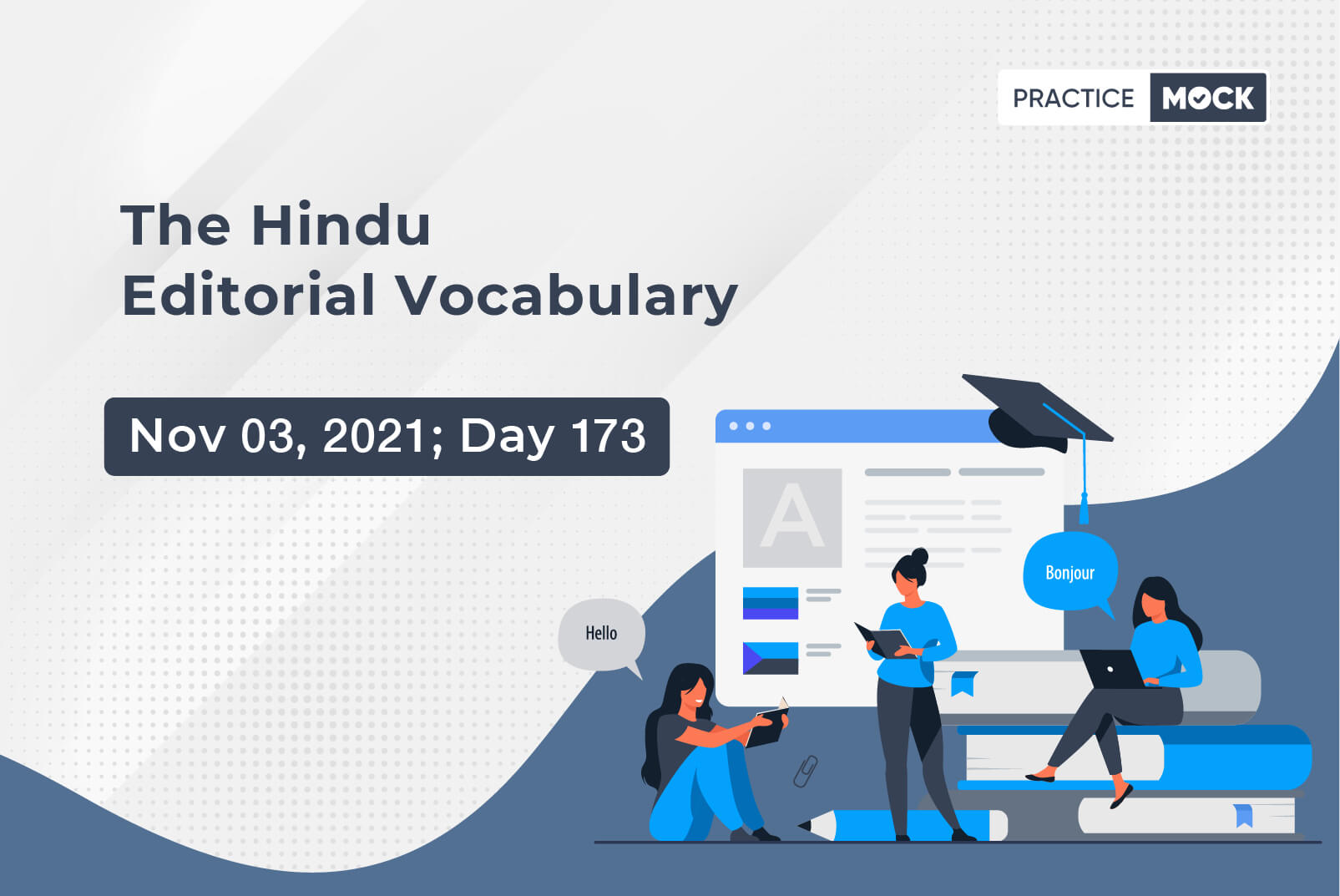| Difficult Word/ Phrase | Contextual Sense |
| Expediency | providing an easy and quick way to do something |
| Fraught | causing or having extreme worry or anxiety |
| Invalidation | a formal termination |
| Strike down | abolish a law or regulation |
| Earmark | to designate (something, such as funds) for a specific use or owner |
| Denude | to deprive of something important |
| Hindrance | Any obstruction that impedes or is burdensome |
| Impending | Close in time; about to occur |
| Restive | Being in a tense state |
| Ally | someone who helps and supports someone else |

Quota without data: On base reservation policies on data
States should base reservation policies on data, not political expediency (providing an easy and quick way to do something)
An exclusive internal quota for a single caste group was always fraught (causing or having extreme worry or anxiety) with the danger of judicial invalidation (a formal termination). It is no surprise, therefore, that the Madras High Court has struck down (abolish a law or regulation) the Tamil Nadu law that earmarked (to designate (something, such as funds) for a specific use or owner) 10.5% of seats in educational institutions and jobs for the Vanniyakula Kshatriya community and its sub-castes. The court’s foremost reason is that the State Assembly lacked the legislative competence to enact the law in February 2021, at a time when the Constitution 102nd Amendment, conferring exclusive power to identify backward classes on the President, was in force. That the Constitution 105th Amendment subsequently restored the States’ powers to identify backward classes was not deemed relevant as, on the date of the enactment, the Assembly had been denuded (to deprive of something important) of such power. The Bench of Justices M. Duraiswamy and K. Murali Shankar, also ruled that identifying one caste as a separate group for creating an exclusive quota, without any quantifiable data on its backwardness relative to others, amounted to giving reservation solely on the basis of caste and, therefore, impermissible under the Constitution. Further, it noted that the remaining 115 castes under the ‘MBC and Denotified Communities’ category were forced to share the remaining 9.5% (in two groups with 2.5% and 7%, respectively) of what used to be a 20% MBC/DNC quota. This amounted to discrimination.
The court also rejected the comparison with the sub-quotas enjoyed without hindrance (Any obstruction that impedes or is burdensome) by Backward Class Muslims and Arundhatiyars, a Scheduled Caste, noting that these two measures were backed by Census data and valid recommendations. What may cause some concern is that the court has said changes in the existing 69% quota classification cannot be made without amending the State’s 1994 reservation protection law, which received the President’s assent and was also included in the Ninth Schedule to put it beyond judicial review. This legal position may pose problems for the BC (Muslim) and SC (Arundhatiyar) quota too, as these were introduced through stand-alone laws that received only the Governor’s assent without any amendment to the 1994 Act. That an impending (Close in time; about to occur) agitation by the PMK, a restive (Being in a tense state) ally (someone who helps and supports someone else) of the then ruling AIADMK, was behind the Vanniyar quota law is known. The government did not wait for the report of a commission it had appointed earlier to gather quantifiable data to justify the State’s 69% total reservation. The present DMK regime also backed the exclusive Vanniyar quota in court, and is likely to go on appeal. The Supreme Court has been asking governments to justify their reservation levels through quantifiable data. Instead of looking for shortcuts to popularity, regimes in all States should focus on compiling credible data both on the backwardness of sections of society and their level of representation in public services and educational opportunities.

Want to improve your vocabulary further? Download the Lists of Word-Meanings of Previous Months here.
- Sign Up on Practicemock for Updated Current Affairs, Free Topic Tests and Free Mini Mocks
- Sign Up Here to Download Free Study Material
Free Mock Tests for the Upcoming Exams
- IBPS PO Free Mock Test 2024
- RBI Grade B Free Mock Test 2024
- IBPS SO Free Mock Test 2024
- NABARD Grade A Free Mock Test 2024
- SSC CGL Free Mock Test 2024
- IBPS Clerk Free Mock Test 2024
- IBPS RRB PO Free Mock Test 2024
- IBPS RRB Clerk Free Mock Test 2024
- RRB NTPC Free Mock Test 2024
- SSC MTS Free Mock Test 2024
- SSC Strenographer Free Mock Test 2024
- GATE Mechanical Free Mock Test 2024
- GATE Civil Free Mock Test 2024
- RRB ALP Free Mock Test 2024
- SSC CPO Free Mock Test 2024
- AFCAT Free Mock Test 2024
- SEBI Grade A Free Mock Test 2024
- IFSCA Grade A Free Mock Test 2024
- RRB JE Free Mock Test 2024
- Free Banking Live Test
- Free SSC Live Test



